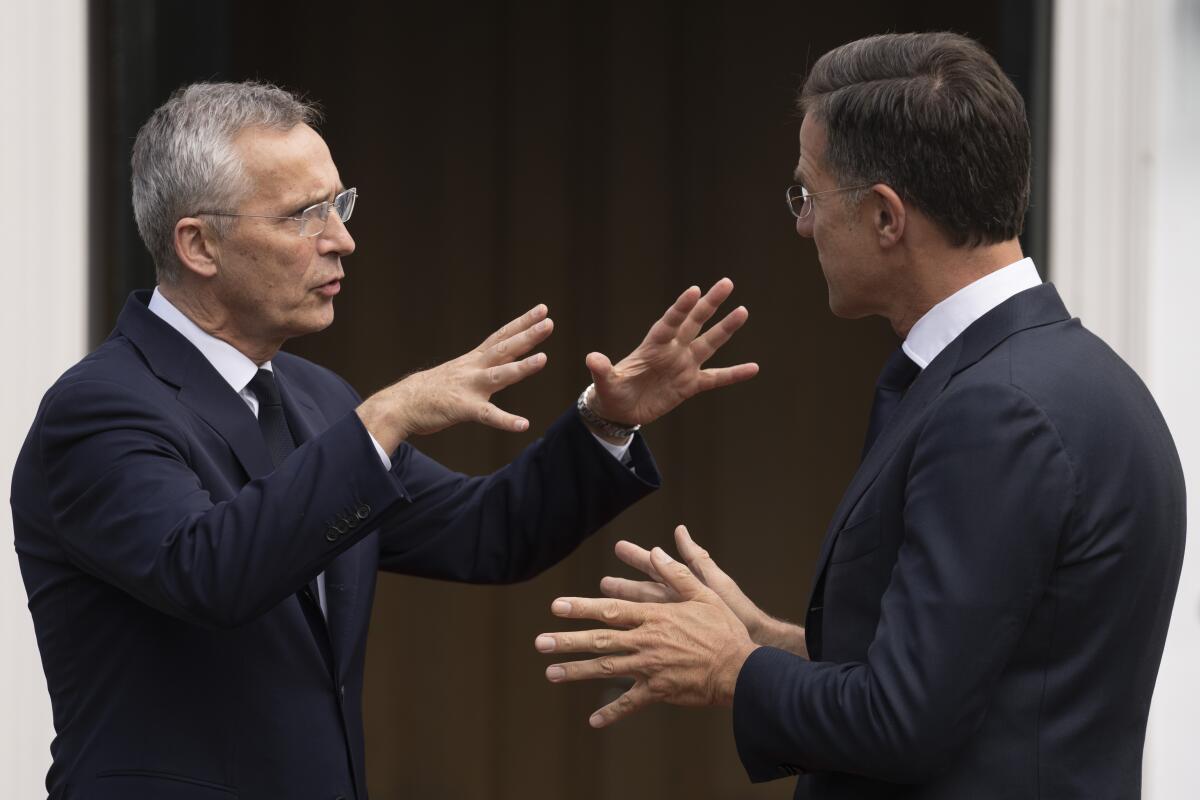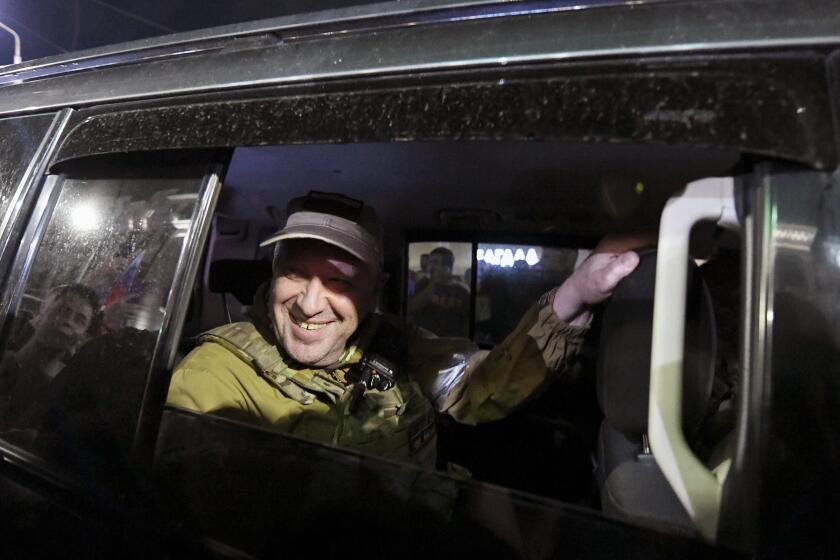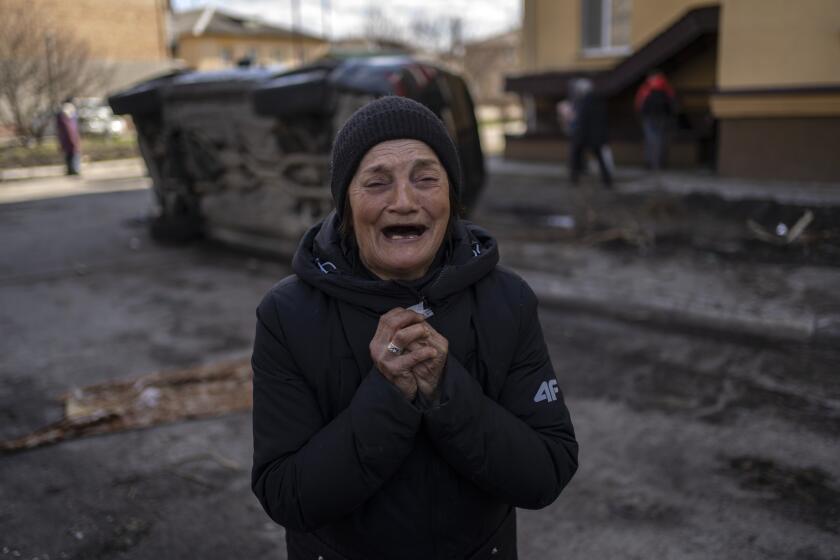NATO warns that Russian forces should not be underestimated and increases its readiness

- Share via
THE HAGUE — NATO’s chief said Tuesday that the power of Russia’s military shouldn’t be underestimated following the weekend mutiny against it by Wagner Group mercenaries, and said the alliance has increased its readiness to confront Russia in recent days.
Jens Stoltenberg said the alliance may decide to further boost its strength and readiness to face Russia and its ally Belarus when NATO leaders meet in the Lithuanian capital of Vilnius on July 11-12.
”So, no misunderstanding and no room for misunderstanding in Moscow or Minsk about our ability to defend our allies against any potential threat,” Stoltenberg said.
At a meeting in The Hague of eight NATO leaders, Lithuanian President Gitanas Nausėda said that neighboring countries would face a heightened danger if the Wagner Group deploys its “serial killers” in Belarus.
Russian authorities have closed a criminal investigation into the armed revolt led by mercenary chief Yevgeny Prigozhin, with no charges against him.
Stoltenberg said it was still too early to draw any conclusions about what Wagner leader Yevgeny Prigozhin and some of his forces might do or whether they all might end up in Belarus.
The leaders agreed that, given the short-lived revolt by Wagner fighters in Russia over the weekend, that the allies should continue to bolster their forces along NATO’s eastern flank to discourage Russian President Vladimir Putin from attempting to widen his war.
NATO responded to Russia’s full-scale invasion of Ukraine in February 2022 by deploying multinational battle groups in Slovakia, Hungary, Romania and Bulgaria. They complement another four deployed in 2017 in the three Baltic states and Poland, to expand NATO’s presence from the Baltics to the Black Sea. On Monday, Germany said that it stands ready to permanently base forces in Lithuania, if needed.
Rutte and Stoltenberg met with the presidents of Romania and Poland and leaders of Belgium, Norway, Albania and Lithuania at the Dutch leader’s official residence in a leafy suburb of The Hague.
Earlier Tuesday, Russian authorities said they had closed a criminal investigation into the aborted armed rebellion led by Prigozhin and are pressing no charges against him or his troops.
The United Nations human rights office says Russian forces carried out widespread and systematic torture of civilians who were detained in Ukraine.
The mutiny by Wagner Group forces lasted less than 24 hours, but formed the latest twist in a series of events that have brought the gravest threat to Putin’s grip on power in the 16-month-old war in Ukraine.
The war led Sweden and Finland to seek to join NATO. Finland has already become the alliance’s latest member, but Sweden’s membership is being held up by Turkey.
On Monday, Stoltenberg said he will call an urgent meeting in the coming days to try to overcome Turkish objections to Sweden joining the military organization in a last-ditch effort to have the Nordic country standing alongside the allies at the July summit in Lithuania.
NATO requires the unanimous approval of all members to expand. Turkey accuses Sweden of being too lenient toward groups that Ankara says pose a security threat, including militant Kurdish groups and people associated with a 2016 coup attempt.
Associated Press writers Lorne Cook and Raf Casert in Brussels contributed to this report.
More to Read
Sign up for Essential California
The most important California stories and recommendations in your inbox every morning.
You may occasionally receive promotional content from the Los Angeles Times.












